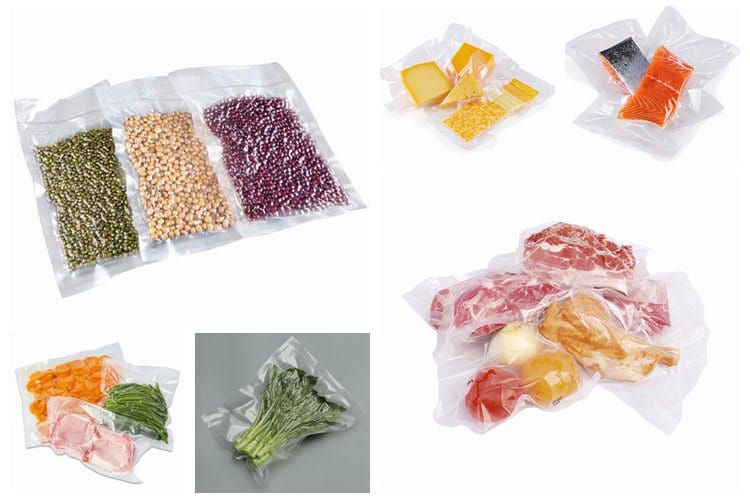Vacuum sealing has become a popular method for extending the shelf life of food. By removing air and creating an airtight seal, vacuum-sealed bags help slow down the spoilage process, preserve freshness, and maintain food quality. In this article, we discover the general guidelines for how long different types of food can last when stored in vacuum-sealed bags.

Dry and Non-Perishable Foods
Dry goods such as rice, pasta, flour, and sugar are excellent candidates for vacuum sealing. When stored in a cool, dry, and dark environment, these items can remain safe to consume for an extended period. Typically, vacuum-sealed dry goods can maintain their quality for 1 to 2 years or even longer, making them a reliable pantry storage solution.
Refrigerated Foods
Vacuum-sealed food stored in the refrigerator enjoys a significantly extended shelf life compared to traditional storage methods. However, it’s important to note that the shelf life of refrigerated vacuum-sealed food is still shorter than that of frozen items. Here are some estimated durations for various refrigerated foods in vacuum-sealed bags:
- Raw meats: Vacuum-sealed raw meats, including beef, pork, and poultry, can typically stay fresh in the refrigerator for 1 to 2 weeks, depending on the initial quality of the product.
- Cooked meats: Cooked meats, such as roasted chicken or grilled steak, can maintain their taste and quality for about 1 week when properly vacuum-sealed and refrigerated.
- Cheese: Vacuum-sealed cheese, depending on the type, can last from 1 to 4 months in the refrigerator without significant quality degradation.
- Vegetables and fruits: When vacuum-sealed, fresh produce can last for 1 to 2 weeks in the refrigerator, offering an extended window for consumption.
- Leftovers: Vacuum-sealed leftovers can retain their flavor and quality for approximately 1 to 2 weeks in the refrigerator, allowing for convenient meal planning and reduced waste.
Frozen Foods
The freezer is an ideal environment for vacuum-sealed food storage, as low temperatures help further slow down the spoilage process. Properly vacuum-sealed and stored frozen food can maintain its taste and quality for an extended period. Here are some estimated durations for different types of vacuum-sealed frozen foods:
- Raw meats: Vacuum-sealed raw meats can be safely stored in the freezer for 2 to 3 years while still maintaining acceptable quality.
- Cooked meats: Cooked meats, such as soups or stews, can last for 2 to 3 months in the freezer when properly vacuum-sealed, preserving their taste and texture.
- Vegetables and fruits: Vacuum-sealed frozen produce can retain its quality for 8 to 12 months in the freezer, preserving its taste, texture, and nutritional value.
- Baked goods: When vacuum-sealed and stored in the freezer, baked goods like bread or pastries can stay fresh for 2 to 3 months, allowing for future enjoyment.
Summary
Vacuum sealing offers a practical and effective solution for extending the shelf life of various foods. By removing air and creating an airtight seal, vacuum-sealed bags help slow down spoilage, preserve freshness, and maintain food quality. While the exact duration of food preservation varies depending on factors such as the type of food, storage conditions, and initial quality, vacuum-sealed dry goods can last for years, refrigerated items can last for weeks, and frozen foods can remain of high quality for months to a year or more. By understanding these guidelines, individuals can optimize their food storage practices, reduce waste, and enjoy the benefits of extended food freshness.
Vacuum sealers are quite important in modern society. They can keep various foods keep fresh including meat, rice, vegetables, fruits, seafood, etc. And we provide a full range of vacuum sealers, like portable small vacuum sealer, single room chamber sealer, and double room chamber sealer. They have different features, benefits, and prices. If you are looking for reliable vacuum sealers, feel free to contact us for useful information.
